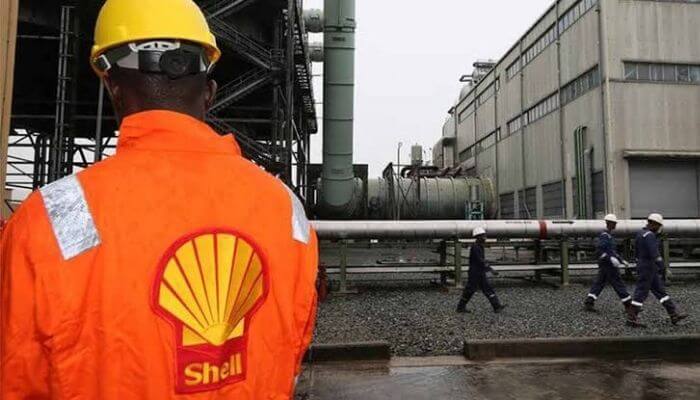From Shell to Seplat: The rise of Nigeria’s oil independents
When Shell discovered commercial crude in the Niger Delta in 1956, it entrenched a hierarchy that lasted decades: international oil companies at the top, the Nigerian state in the middle, and oil-bearing communities at the margins.
Nearly thirty years after the execution of Ken Saro-Wiwa, the most prominent critic of that structure, the architecture of Nigeria’s oil industry is being rewritten, not by foreign majors, but by a rising generation of Nigerian independents.
The shift is visible in the numbers.
Read also: Shell gives Nigeria offshore gas deal to US contractor
Over the last decade, Shell, ExxonMobil, TotalEnergies and Eni have divested from swathes of onshore and shallow-water assets, retreating offshore where risks are lower and returns higher.
For years, vandalism, oil theft, militancy and costly community disputes turned the onshore Niger Delta into an economic and reputational liability. What was once the backbone of their Nigerian operations became expendable.
But for ambitious local operators, Seplat Energy, Aiteo, Oando and Waltersmith among them, the exit of the majors offered an opening previously unimaginable.
Seplat led the first wave. Its acquisitions of OML 53 and Chevron’s OML 55 signalled that Nigerian independents could not only buy stranded assets but run them with commercial discipline.
The breakthrough came in 2015, when Aiteo Eastern Exploration stunningly closed a $2.7 billion deal for OML 29 and the Nembe Creek Trunk Line, a critical artery for crude evacuation. Waltersmith and Oando have since expanded upstream footprints, pairing production with downstream ambitions, including modular refining, long considered beyond the reach of indigenous firms.
Supporters of this transition say that Nigerian companies are proving something foreign majors never fully mastered: how to manage the Niger Delta’s fragile social equilibrium.
“Indigenous investors should have a better understanding and possibly a better strategy on how to manage community relations,” said Muda Yusuf, founder of the Centre for the Promotion of Private Enterprise. “They seem to have some advantage because they can cope better with the problem of insecurity, a major challenge for IOCs.”
But for all the celebratory rhetoric around local empowerment, the economics of this transition remain severe. Many of the independents financed their acquisitions with expensive, short-tenor loans from Nigerian banks.
Unlike the IOCs, which borrow cheaply on global markets, Nigerian players are squeezed by interest costs and thin cash flows , leaving little room for asset rejuvenation or environmental remediation on aging fields.
“The loans they may have taken to acquire these assets would definitely affect them,” Yusuf noted. “Taking facilities from the Nigerian financial system is not the best for any investor because the terms are too difficult.”
The strain is visible in deferred maintenance and stalled deals. The most symbolic was TotalEnergies’ planned $860 million divestment to Chappal Energies, expected to reshape Nigeria’s upstream landscape and boost gas supply to the Nigeria LNG export plant.
The Nigerian Upstream Petroleum Regulatory Commission confirmed in September that the deal collapsed after Chappal failed to meet its financing obligations. TotalEnergies had fulfilled its side of the agreement.
The failure underscores a more systemic concern: regulatory unpredictability. “Debt can be managed,” said Oluwatoni Oladiran, managing director of Oilden Energies. “But an unpredictable regulatory environment makes planning nearly impossible.”
Still, Oladiran gives the independents credit. On a scale of ten, he says they are performing at “around 7”, protecting jobs, maintaining output and engaging communities more quickly than the majors had. The shortfall, he argues, is corporate governance.
Read also: Africa poised to benefit from global carbon trade, says Shelleng
“Local control has certainly improved community relations and responsiveness,” he said. “But governance remains a work in progress. There’s a need for stronger structures, transparency in reporting, and global best practices in environmental management.”
These issues carry an unavoidable echo of Saro-Wiwa. The Ogoni campaign was rooted in the belief that oil wealth should not devastate the people and environment from which it is extracted. Three decades later, local operators are attempting to prove that ownership by Nigerians can also mean accountability to Nigerians.
“On the whole, I think it is still positive for the oil and gas sector and the economy,” Yusuf said. “Offshore investments by IOCs and onshore activities by indigenous players create a more diversified and resilient industry.”
The real test, as Oladiran puts it, is whether the new custodians can meet the standard the old ones often failed to meet.
“When indigenous players hold themselves to international standards,” he said, “local control will truly translate into better outcomes for Nigeria as a whole.”

